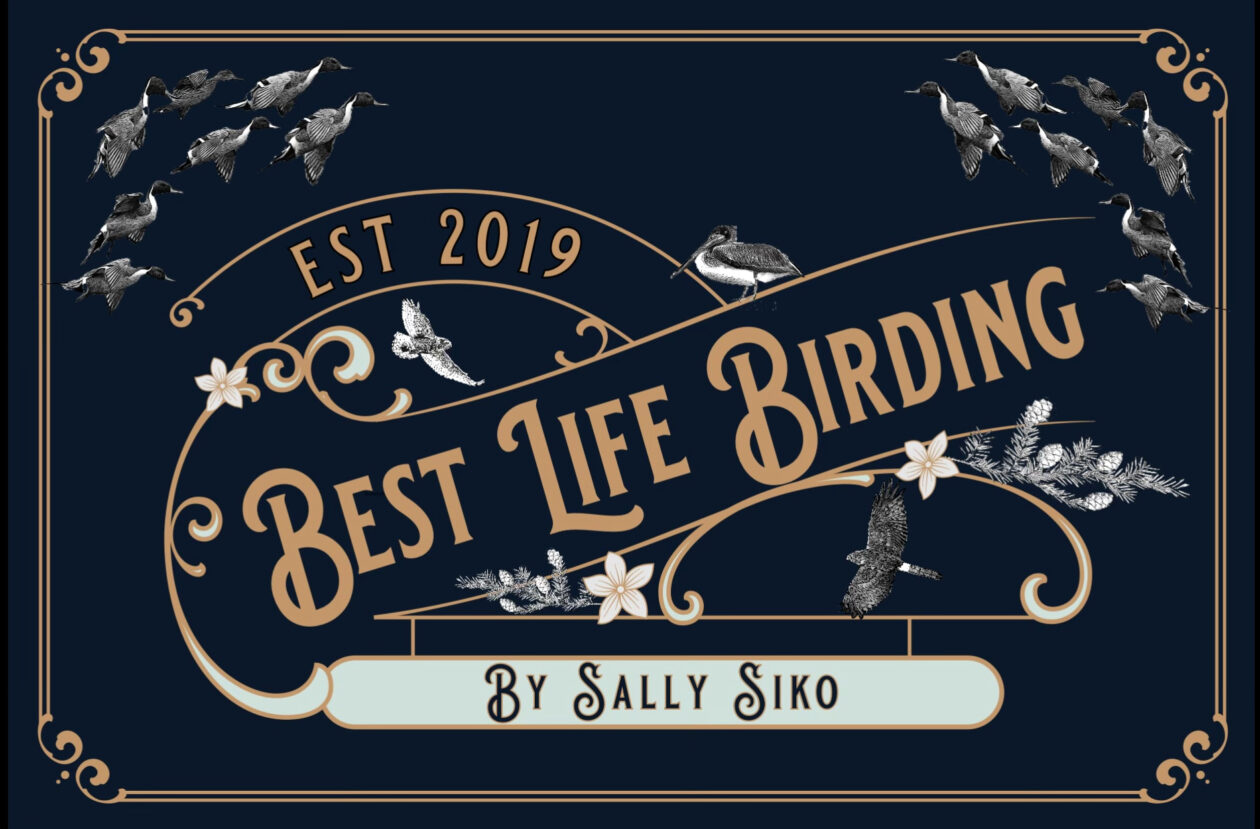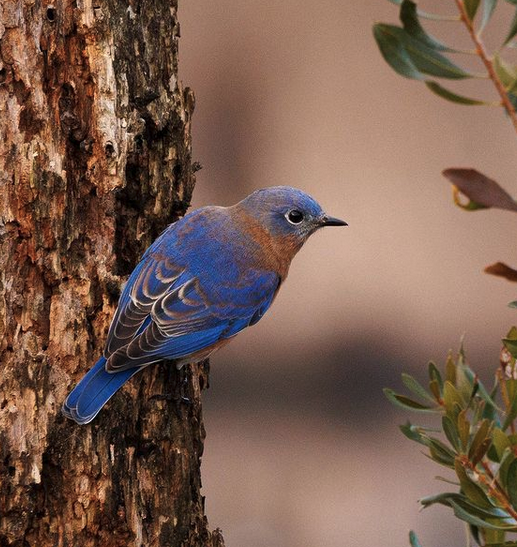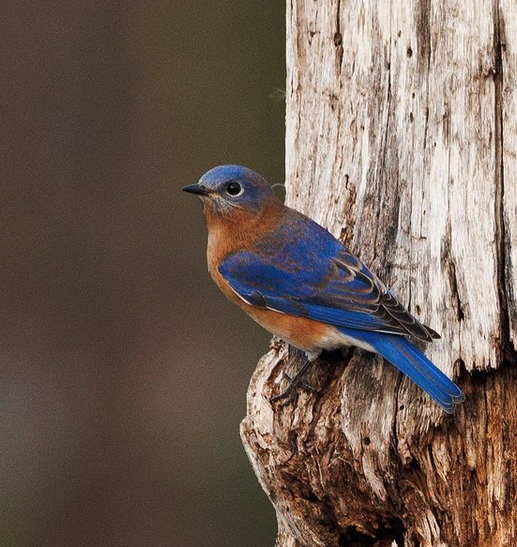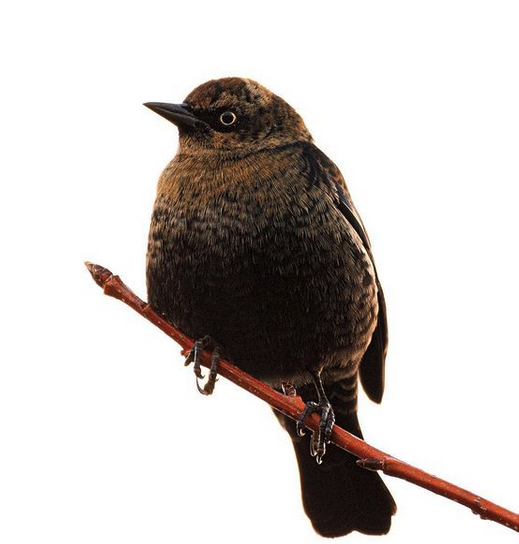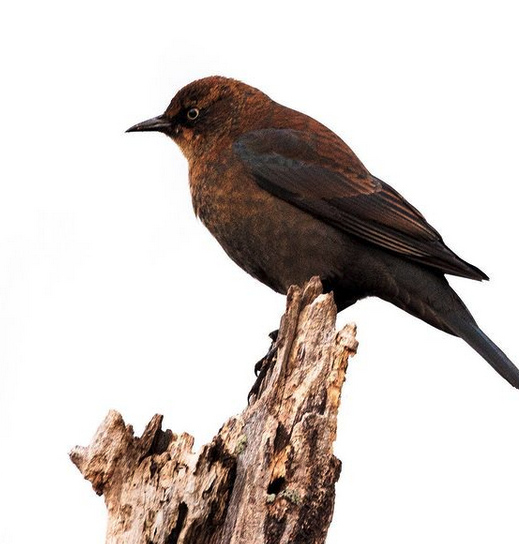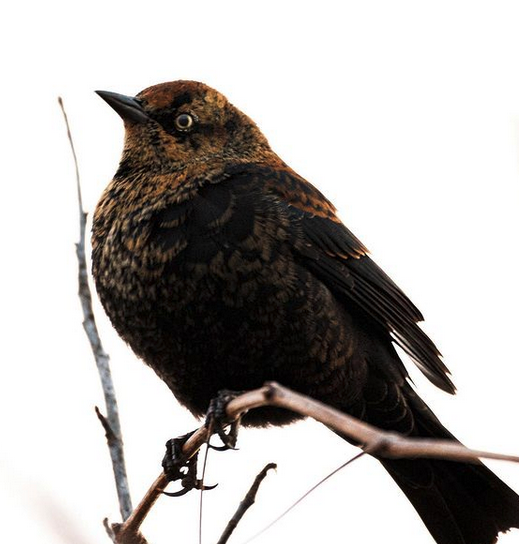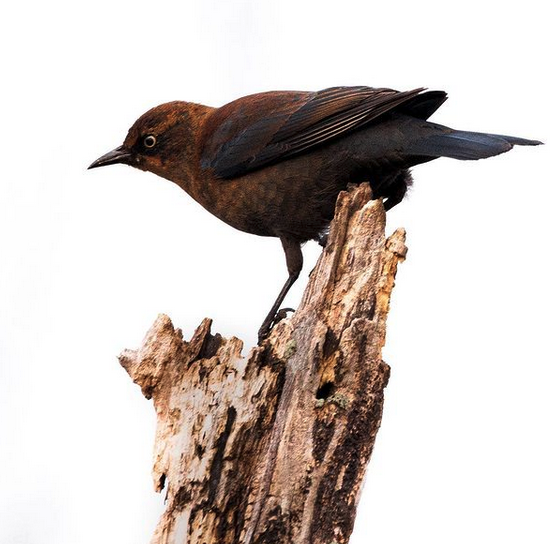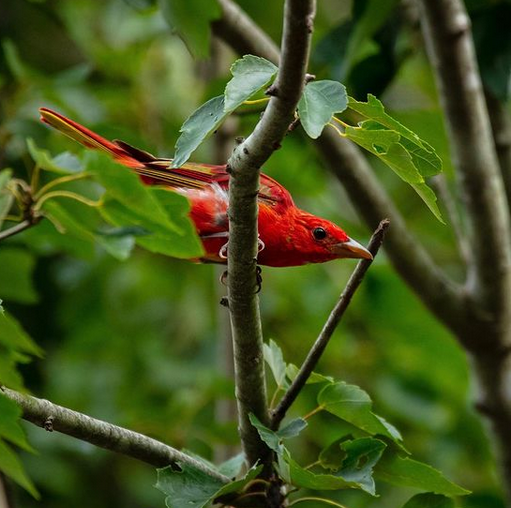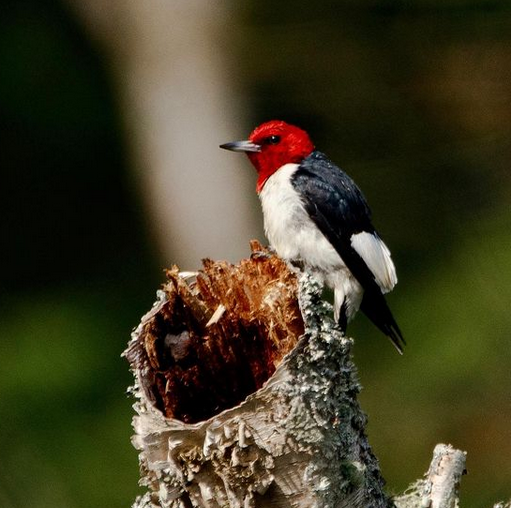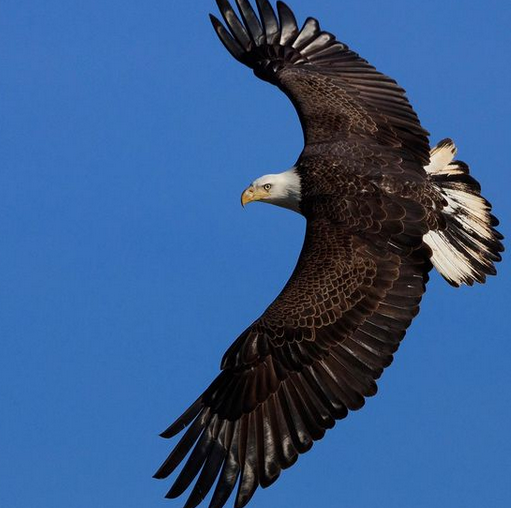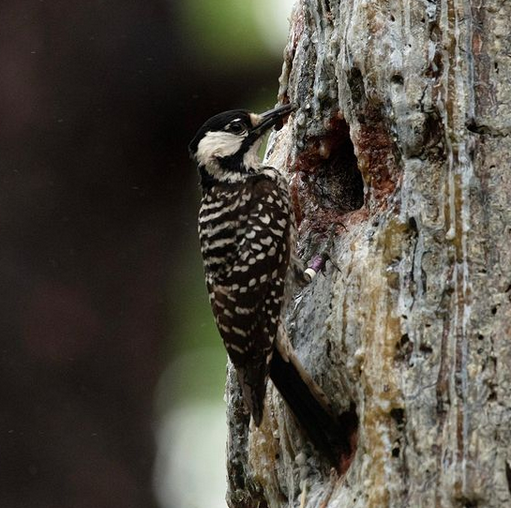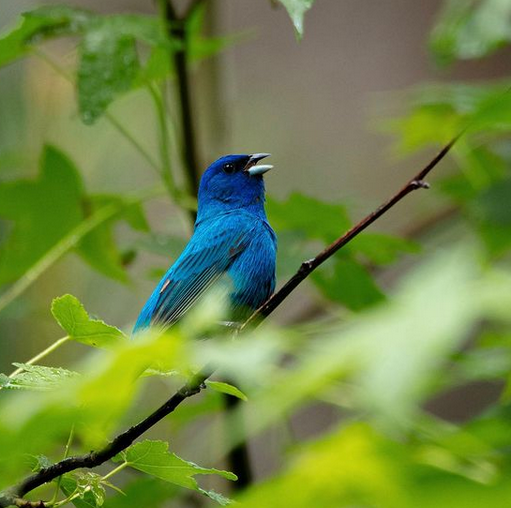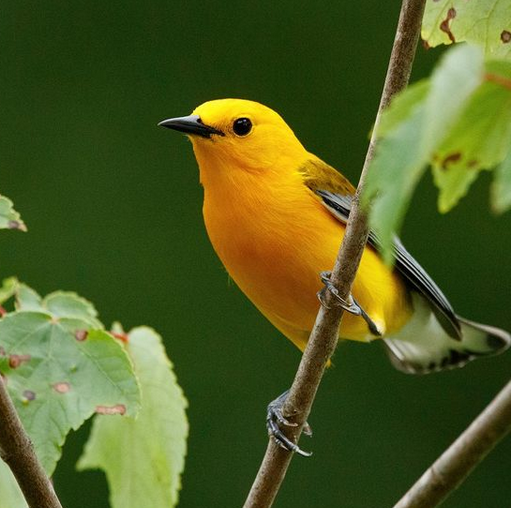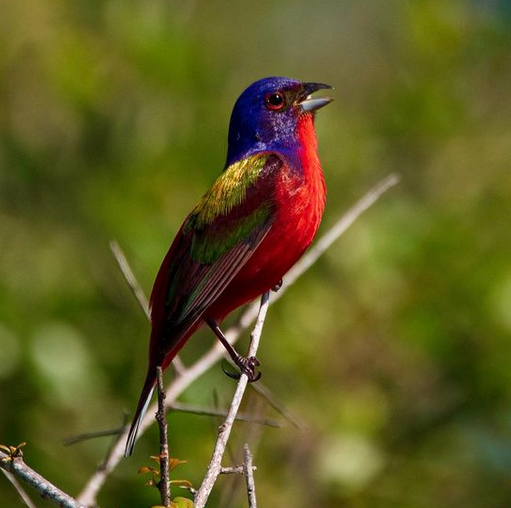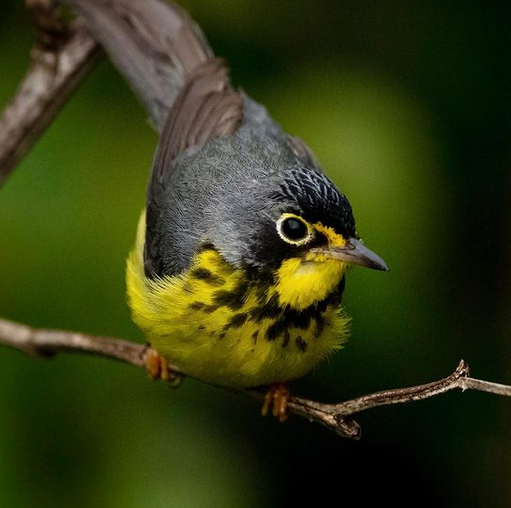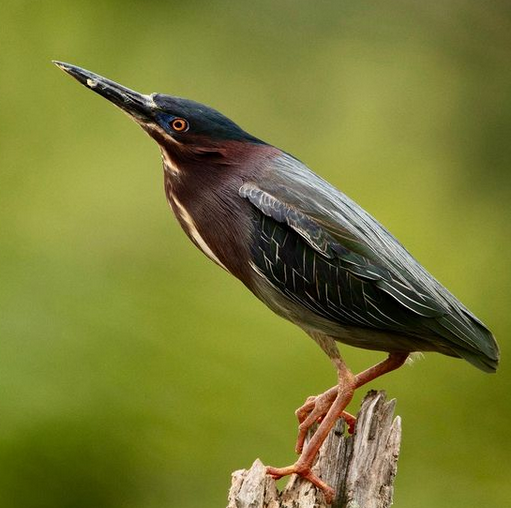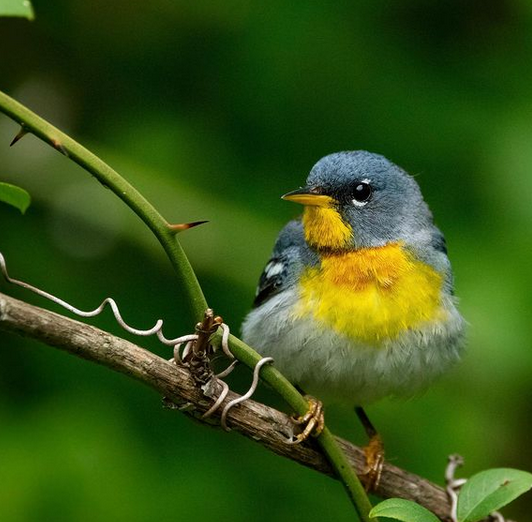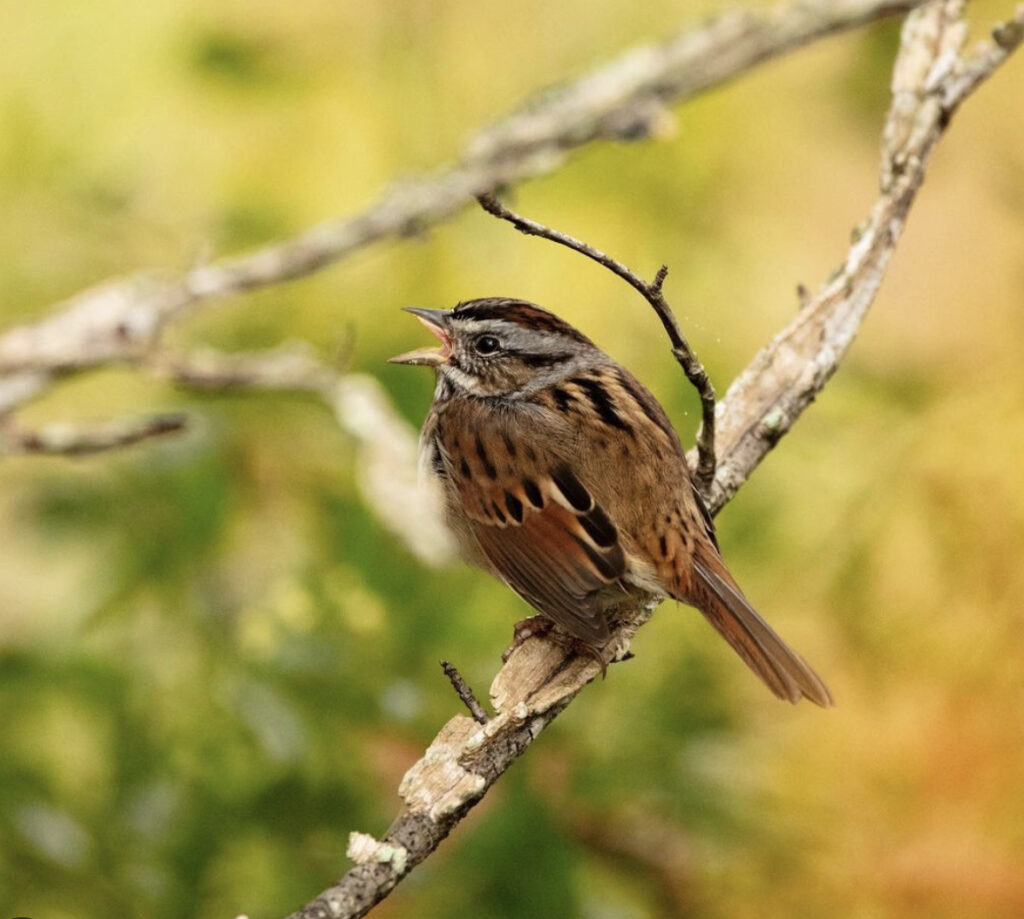By: Sally Siko -Admin BWNC
When you’re out birding on a mission to find something new, common species like the Eastern Bluebird are easy to overlook.
It’s a shame because these birds are absolutely gorgeous.
That blue plumage is as vibrantly hued during the winter as in the summer months!
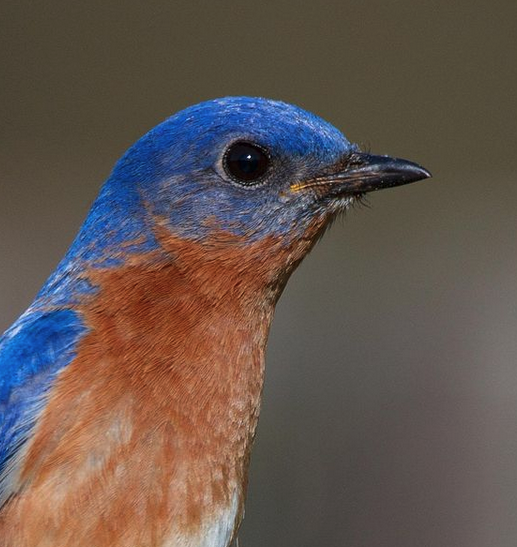
Although I was there with the intent of photographing another bird, this lovely creature was impossible to ignore as it flew from stump to branch over the swamp.
Bluebirds are a year round resident of the Tarheel state and are a familiar sight to all living from the mountains to the coast.
They are best found perching on fence posts and power lines overlooking wide open areas such as agricultural fields, farm ponds and grassy clearings but with so many bird lovers putting up bluebird specific nesting boxes, they’re showing up in ever increasing numbers on the fence lines of suburban backyards too.
Now that winter is here, families of Bluebirds will form loose flocks to hunt for a meal in stands of long leaf pines with other songbirds such as sparrows, Nuthatches and Pine Warblers.
They are true omnivores with a diet consisting of a mix of seeds, insects and fruits. Being able to digest nutrients from a wide variety of food sources means that the Eastern Bluebird can thrive here in North Carolina even during the coldest months when insects are scarce.
Plus the extra help that bird lovers provide by putting out suet (another favorite Bluebird snack) in their feeders during the wintertime helps a whole lot too 🙂
Photos by @sally_siko of @birdwatching_nc on my mighty mirrorless monster, the @canonusa #R5 & my beloved beast of a DSLR the #5Ds
